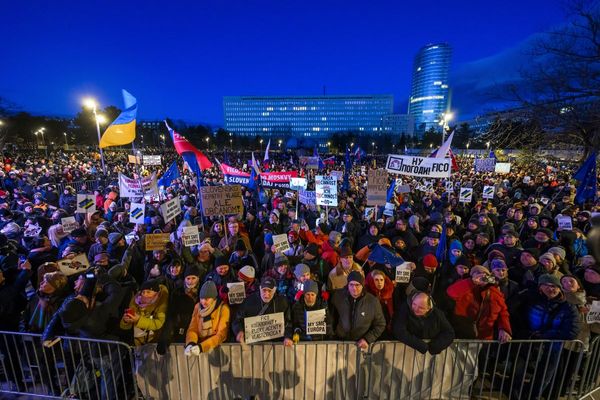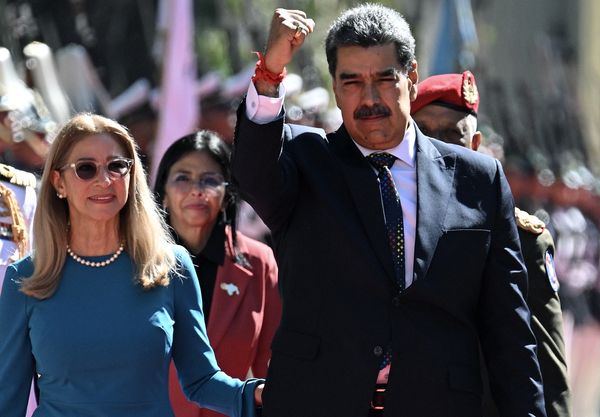
A year ago, Saudi Arabia would hardly have sprung to mind when listing the countries whose soccer leagues were most likely to snap up A-list players.
But now, the nation is forking out hundreds of millions of dollars on soccer stars to make its presence known in the sport—and it's spending so much that most European teams can't compete.
Between June and September this year, Saudi teams spent a whopping $875.4 million poaching foreign players, according to the FIFA International Transfer Snapshot published Friday. That figure came second only to English clubs, which spent a collective $1.98 billion during that window.
French clubs, meanwhile, spent $859.7 million, while Italian teams spent $711 million.
Soccer's governing body found that countries spent an all-time high of $7.36 billion on transfer fees during the three-month period, up 47.2% from last year. It attributed that increase, in part, to Saudi Arabia's "substantial" contribution.
"Among the associations with the greatest transfer fees, Saudi Arabia experienced by
far the biggest growth compared to the previous mid-year transfer window," the FIFA report said.
Saudi Arabia has been aggressively boosting its clout in the world's most widely-watched sport.
The Middle Eastern country has not shied away from investing big—whether that's in the form of an elite league or a new stadium. It has also lured some of the most illustrious soccer players in the world over the last year, including Portuguese football icon Cristiano Ronaldo, as well as Brazil's Neymar and Ballon d’Or winner Karim Benzema.
What's with the spending spree?
Saudi Arabia has doubled-down on its investment into all things soccer, which has included the privatization of the clubs participating in the Saudi Pro League.
Earlier this year, the Saudi Public Investment Fund (PIF)—the country's sovereign wealth fund which is overseen by Crown Prince Mohammed bin Salman—took over control of four of the local clubs. Before then, all teams fell under the jurisdiction of Saudi Arabia's Ministry of Sport and received government support.
The PIF has also made investments in soccer elsewhere—it bought a majority stake in English Premier League club Newcastle United in 2021 for close to $400 million.
Saudi Arabia's foray into soccer comes as the country looks to diversify its economy beyond fossil fuels. Sporting tournaments offer a lucrative opportunity to attract foreign investment and promote domestic industries while generating cashflow.
The country's deep pockets have helped it make steep offers to players who bring star power with them.
Saudi Arabia reportedly offered Lionel Messi $545 million a year and Kylian Mbappé $776 million for a season in one of its clubs—both players declined the offers. But when Ronaldo was offered $200 million a year to join Saudi club Al-Nassr, he took the paycheck.
The Kingdom has also invested in other sports, including Formula 1 motor racing, boxing and golf.
However, even with soccer, the country has a long way to go before it becomes the star-studded hub it hopes to be. For instance, FIFA's report pointed out how Saudi Arabia's transfer receipts were just $15.7 million—a small fraction of what other countries received through their clubs making deals to transfer their valuable players.
Clubs from Germany, for example, received $1.1 billion from outgoing player transfers during the three-month window, representing more than 15% of the global total.
English teams earned $956.2 million from their outgoing player transfers, while French sides earned $887.8 million.
The sudden deluge of Saudi interest and money has drawn criticism from some who think Riyadh is engaging in "sportswashing," or using sport as a way to distract from its human rights record.
Representatives from Saudi Arabia's government didn't immediately return Fortune's request for comment.
Those allegations don't appear to be dampening Saudi Arabia's sports ambitions, however.
Earlier this month, celebrated cricketer and England's test team captain Ben Stokes spoke about how the Kingdom's ability to spend on sports is so vast that it leaves no room for any other forces to compete.







